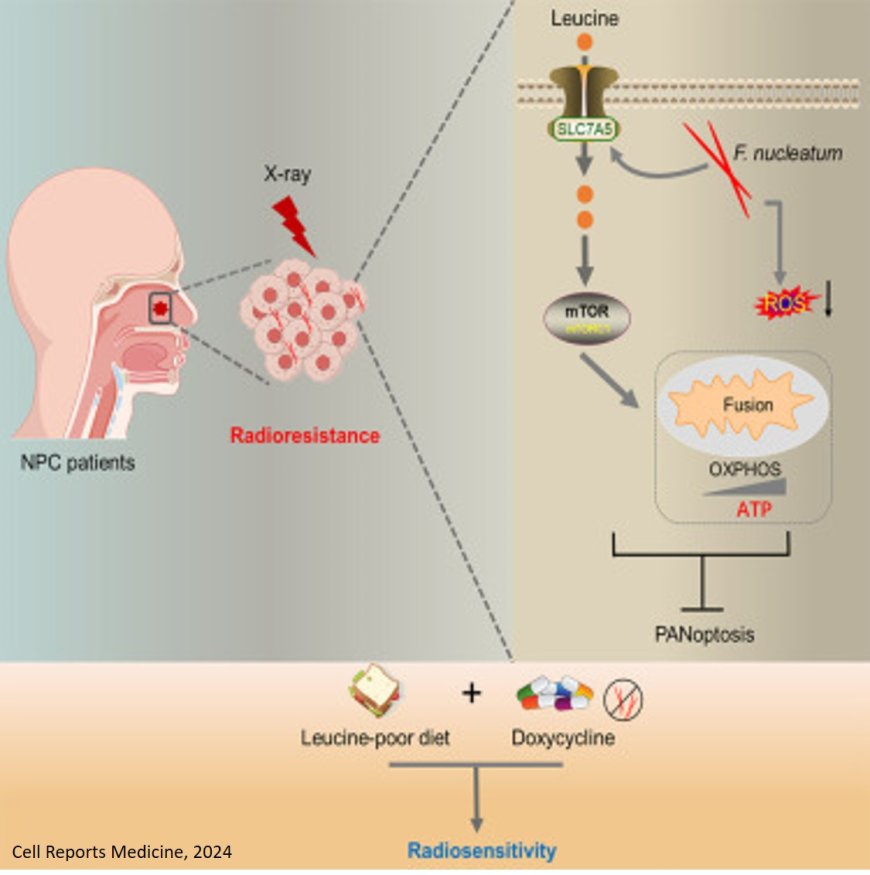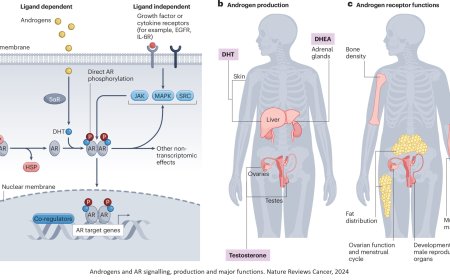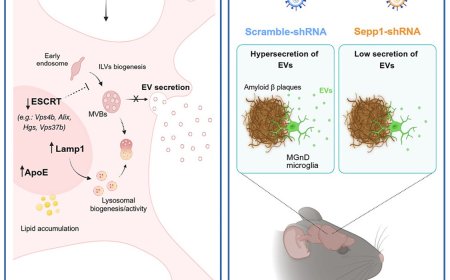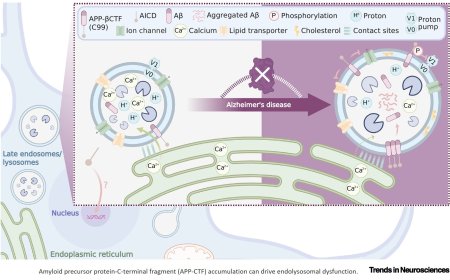How Fusobacterium nucleatum (Fn)-drives radioresistance in nasopharyngeal carcinoma

Reason for radioresistance treatment failure among patients with nasopharyngeal carcinoma (NPC) is not clearly understood. The researchers found that Fn is prevalent in the tumor tissue of patients with NPC.
The researchers report that Fn slowed mitochondrial dysfunction by promoting mitochondrial fusion and decreasing ROS generation, preventing radiation-induced oxidative damage. Fn inhibited PANoptosis by the SLC7A5/leucine-mTORC1 axis during irradiation stress, thus promoting radioresistance.
They also demonstrate that dietary restriction of leucine or mitochondria-targeted antibiotics reduced intratumoral Fn load, resensitizing tumors to radiotherapy in vivo.
These findings reveal a mechanism of host microbe interactions in nasopharyngeal carcinoma and potential strategies for improving clinical response to radiotherapy.
https://www.cell.com/cell-reports-medicine/fulltext/S2666-3791(24)00483-X













